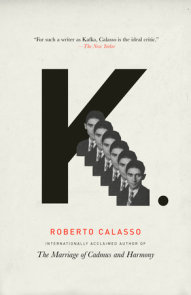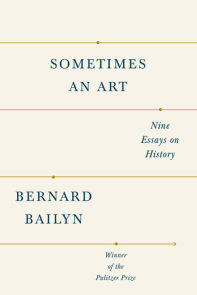READERS GUIDE
"God is our home but many of us have strayed from our native land. The venerable authors of these Spiritual Classics are expert guides–may we follow their directions home."–Archbishop Desmond TutuThe Vintage Spiritual Classics present the testimony of writers across the centuries who have pondered the mysterious ways, unfathomable mercies, and deep consolations afforded by God to those who call upon Him from out of the depths of their lives. These writers are our companions, even our champions, in a common effort to discern the meaning of God in personal experience.
The questions, discussion topics, and background information that follow are designed to enhance your group’s reading of the six works that make up the first series in Vintage Spiritual Classics. We hope they will provide you with a variety of ways of thinking and talking about these ancient and important texts.
We offer this word about the act of reading these spiritual classics. From the very earliest accounts of monastic practice–dating back to the fourth century–it is evident that a form of reading called lectio divina ("divine" or "spiritual" reading) was essential to any deliberate spiritual life. This kind of reading is quite different from that of scanning a text for useful facts and bits of information, or advancing along an exciting plot line to a climax in the action. It is, rather, a meditative approach, by which the reader seeks to taste and savor the beauty and truth of every phrase and passage. There are four steps in lectio divina: first, to read, next to meditate, then to rest in the sense of God’s nearness, and, ultimately, to resolve to govern one’s actions in the light of new understanding. This kind of reading is itself an act of prayer. And, indeed, it is in prayer that God manifests His Presence to us.
Introduction
By the end of the fifth century, a pattern had emerged among early Christian communities in Egypt and the Middle East of men and women leaving their cities, towns, and villages to seek God through radical self-abnegation and solitude. These men and women became known collectively as The Desert Fathers. They were the forerunners of the monks who in succeeding centuries would form cenobitic monasteries–that is, communities of monks and nuns living no longer as hermits but under the rule and care of an abbot or abbess.These saints were often sought out by pilgrims for their spiritual counsel and wisdom. From the extensive collections in Greek and Latin of their recorded words, Helen Waddell has here produced her own selection of some of the most memorable and insightful lessons, which together can help provide a plumb line for any one seeking to find his or her spiritual center.
Questions and Topics for Discussion
1. The most insistent response many modern readers have to the stories of The Desert Fathers is one of alienation or disbelief–a feeling that it is impossible for those who cannot give up worldly responsibilities and things to learn from these saints in the wilderness. What aspects of the lives of the Fathers might be integrated into a busy contemporary life? How do you understand the words of St. Antony, "Fear not this goodness as a thing impossible–it hangeth on our own arbitrament–the Kingdom of God is within" [p. 6]?
2. The abbot Antony said, "Who sits in solitude and is quiet hath escaped from three wars: hearing, speaking, seeing: yet against one thing shall he continually battle: that is, his own heart." How do hearing, speaking, and seeing distract from the work of the soul? Is it the distraction of the world, or the distraction of our own selves, that is the heart of the problem in the search for spiritual purity and peace?
3. It may seem odd that companionship, or the importance of other people, emerges as one of the most moving aspects of this book. What strikes you about the meeting between Saints Paul and Antony [pp. 37-43]? How does the life of deliberate solitude change our relations with other people? Why, as in the case of the abbot John [pp. 128-9], are the desert monks so extraordinarily attentive to the feelings of others?
4. Does the story of the bishop who marvels at Pelagia’s beauty come as a surprise here? The anecdote serves as a caution against spiritual pride and failure to praise the beauty of God’s creation. This is a particular danger for those who are able to deny the body and the senses and who pride themselves on their control. How does this lesson balance with the emphasis elsewhere in The Desert Fathers that the senses are not to be indulged? Is there a proper and improper use of the enjoyment that the senses bring?
5. Paradoxically, renunciation is the gateway to the most radical sort of freedom. As M. Basil Pennington writes in his Preface to this edition, "every true seeker is called to the freedom of the children of God," a freedom "to be who we truly are" [p. xvi]. What might this sort of freedom feel like, and how does it differ from the freedom that is usually valued in American life–the freedom supposedly gained through material wealth? How does the true self of spiritual life differ from the false self we have learned to display to the world? What role do solitude and silence play in bringing true freedom and the true self into being?
6. The solitude of The Desert Fathers was based on the desire to live as though "I alone and God are in this world" [p. 113]. As Helen Waddell points out, this radical rejection of the polis, the civil community, went against the Roman civic conscience. If the fathers were concerned only for their personal integrity, for their own spiritual afterlives, how can we reconcile their rejection of the world with the aspects of the Gospels which concern our responsiblity for others? What examples do we find here of ways in which we can care for our own souls and still be in the service of others?






















